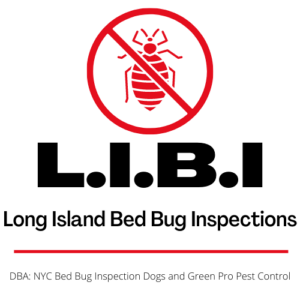When a bed bug bites someone it’s highly unlikely that the victim will fee the attack at the time. In the majority of cases the victim doesn’t feel the bite, and doesn’t exhibit any definite signs of being bitten, until well after the bites have occurred.
The time it takes for a bed bug bite to appear typically varies from person to person. Some of us react fairly quickly, developing the telltale red welts within days of the insect’s bite. Other people, however, may experience a longer delay before visible evidence of the bed bug’s attack can be seen by the naked eye. The time lag between bite and discernable reaction can take between 2 days and 2 weeks.
Can You Immediately Feel a Bed Bug’s Bite?
Bed bugs primarily feed at night when their hosts are asleep. Most people are blissfully unaware that they are being preyed on until long after the bite. In rare cases you might feel a bed bug crawling on you while you’re awake, but when you’re asleep these blood-sucking insects can pretty much prowl with impunity.
As to the bite itself – most people never feel a bed bug biting due to the anesthetic contained in the insect’s saliva. This anesthetic allows the bed bug to feed without disturbing its host. It’s only later, when the anesthetic wears off and the body begins to react, that people realize they’ve been bitten.
Most of us are mildly allergic to bed bug saliva, and it is the reaction of our immune system that causes the tell tale red welts and itchiness. The majority of people will have a relatively mild reaction to a bed bug bite, and it may take some time to notice the bites or to react to the allergen. Those that are hypersensitive to the allergens in bed bug bites tend to react more quickly and more severely to an attack.
How Long Does it Take for Bed Bug Bites to Show?
How long it takes for a bed bug bite to show depends largely on the individual and the reaction of their immune system to the allergens in the insect’s saliva. Some people will react fairly quickly, showing signs of being bitten within hours of the attack.
In most cases, however, a delayed reaction is much more common. For a majority of people the red welts associated with bed bug bites will only begin to appear several days after the host has actually been bitten.
In the case of large-scale infestations people can expect to find ‘new’ bite marks every day, when in fact those ‘bites’ will have occurred days previous. It’s important to note that even after a successful treatment for bed bugs people may continue to develop so-called ‘new’ bites. It may take up to two weeks following a successful elimination before people stop noticing new bed bug bites.
What Factors Affect Reaction Times?
The raised red bumps and welts that are so commonly associated with bed bug bites can take some time to appear; how much time largely depends on the individual and the reaction of their immune system.
Some people have very mild reactions to bed bug bites. In fact, about 30% of people will have no reaction at all to the bite of a bed bug. This can lead to people ignoring a bed bug infestation until it’s totally out of control.
So what can impact the reaction time following a bed bug bite?
- Age – Elderly people tend to have a milder reaction to bed bug bites. Likewise, younger children tend to fair better than adults.
- Medication – Medications that suppress the body’s immune system, such as corticosteroids, can impact a person’s reaction to bed bug bites. People on these medications may have very mild reactions to the bites, or may have no reaction at all.
- Skin Sensitivity – People with sensitive skin are likely to have more severe reactions to bed bug bites. If, for example, you are hypersensitive to a mosquito bite chances are you will have a more severe reaction to a bed bug’s bite.
When Does the Itching Start?
The itching associated with bed bug bites is the body’s natural reaction to the allergen found in the insect’s saliva. When your body detects an allergen the immune system releases antibodies and mast cells. When these come into contact with the allergen they deploy histamines whose job is to rid the body of the foreign invader – in this case the bed bug saliva.
One of the side effects of the histamine action is an uncomfortable skin reaction. In most cases this results in itching, redness and swelling of the affected areas. Bed bug bites start to itch as soon as the body releases histamine to fight the invading allergen. Depending on individual sensitivity the timeline for bed bug bites can be as short as a few hours and as extensive as several days following the initial bite.
How Long do Bed Bug Bites Last?
Bed bug bites are unsightly and itchy. Fortunately, however, they don’t last forever. For most people bed bug bites will heal within a couple of weeks of appearing. They won’t disappear overnight, but will begin to slowly fade away. The raised welts will slowly flatten, the redness will begin to fade, and the itchiness will become less intense. Eventually, the bite will disappear completely.
The time it takes for bed bug bites to disappear again depends on the sensitivity of the individual. Those who experience a more severe allergic reaction to the bite will take longer to recover; the more mild the reaction the quicker the bites and itchiness will disappear.
There are some things you can do to help speed recovery times or, at the very least, lessen the discomfort associated with bed bug bites.
- Cooling Lotions – Calamine lotion and aloe vera gel can be used to calm the irritation associated with bed bug bites.
- Antihistamine Creams – Over the counter antihistamine creams (Benadryl, Cortizone 10, etc.) can be used to reduce the inflammation and irritation associated with bed bug bites. These creams can help reduce itchiness and speed healing of the affected area.
- Oral Antihistamines – Like over the counter creams, oral antihistamines can often prove helpful in reducing inflammation and irritation caused by bed bug bites.
- Cortisone Shots – For those with more severe reactions to bed bug bites a doctor may prescribe cortisone shots as an effective treatment for the itchiness and inflammation associated with the bites. Cortisone shots are highly effective, but can be expensive and must be administered by a licensed physician.
Managing Bed Bug Bites Effectively
The only real way to stop bed bug bites is to deal with the infestation itself. As long as there are bed bugs in your home you and your family will continue to be bitten, so it is imperative that you take the necessary steps to eliminate the infestation and protect your family.
The first step is to contact a professional bed bug inspection and removal service to schedule an inspection. Working together you and your service provider can develop a plan of attack that will eliminate your bed bug problem once and for all, allowing you and your family to sleep easier (and itch less).
Published by Scott Palatnik
If you believe you’ve brought bed bugs into your home or office, give us a call, we can help!
Now with 2 locations. On Long Island @ 516-619-6149, or in NYC @ 212-299-9186
We are Long Island Bedbug Inspections.
Your Bedbug Inspection, and Elimination solution.


